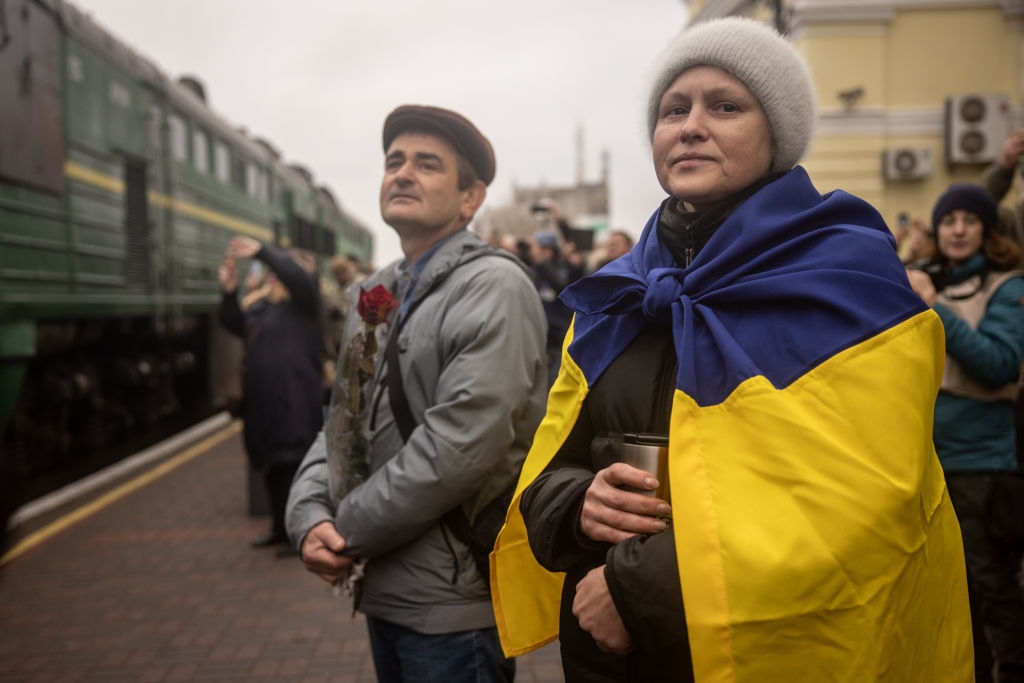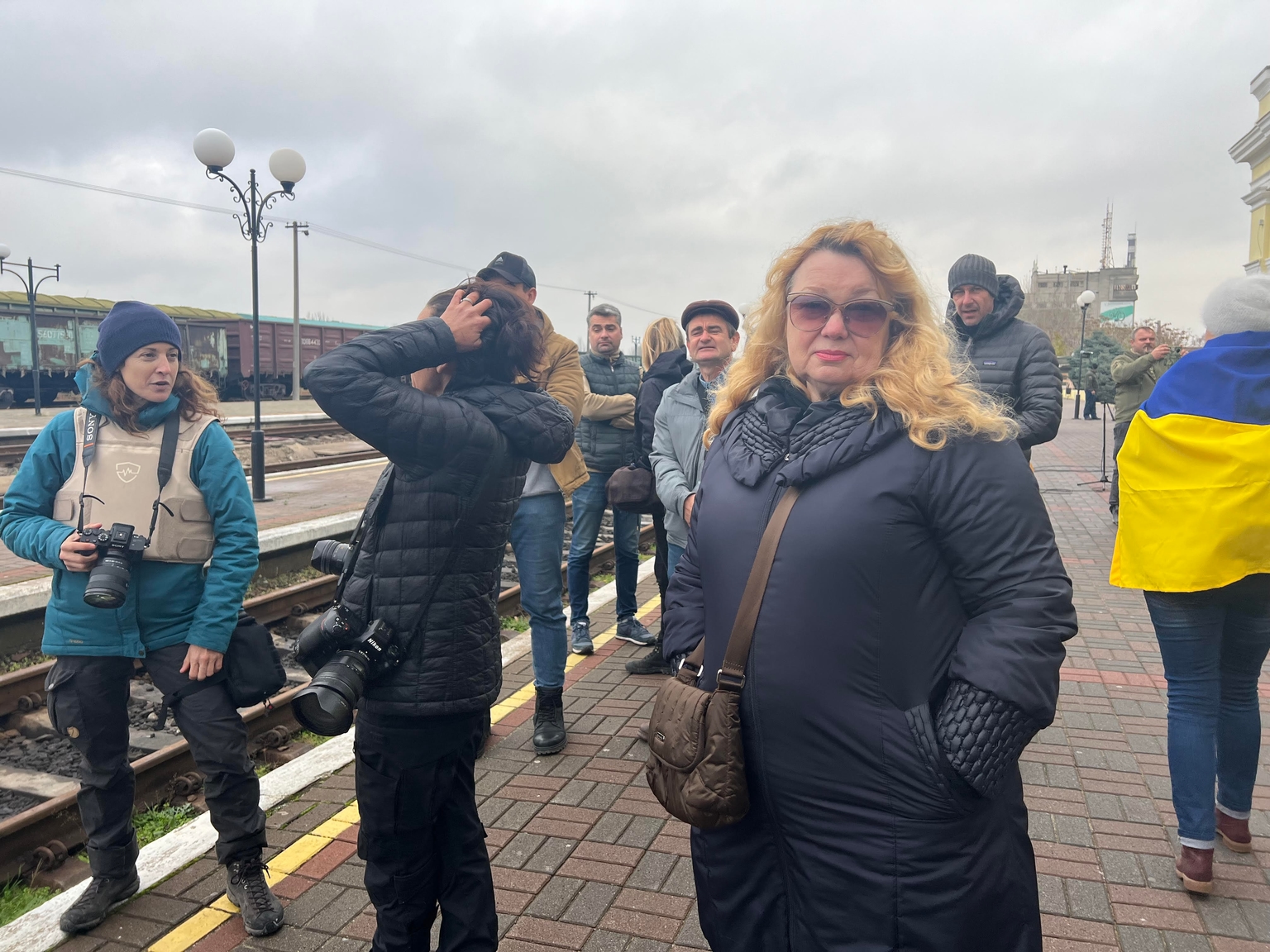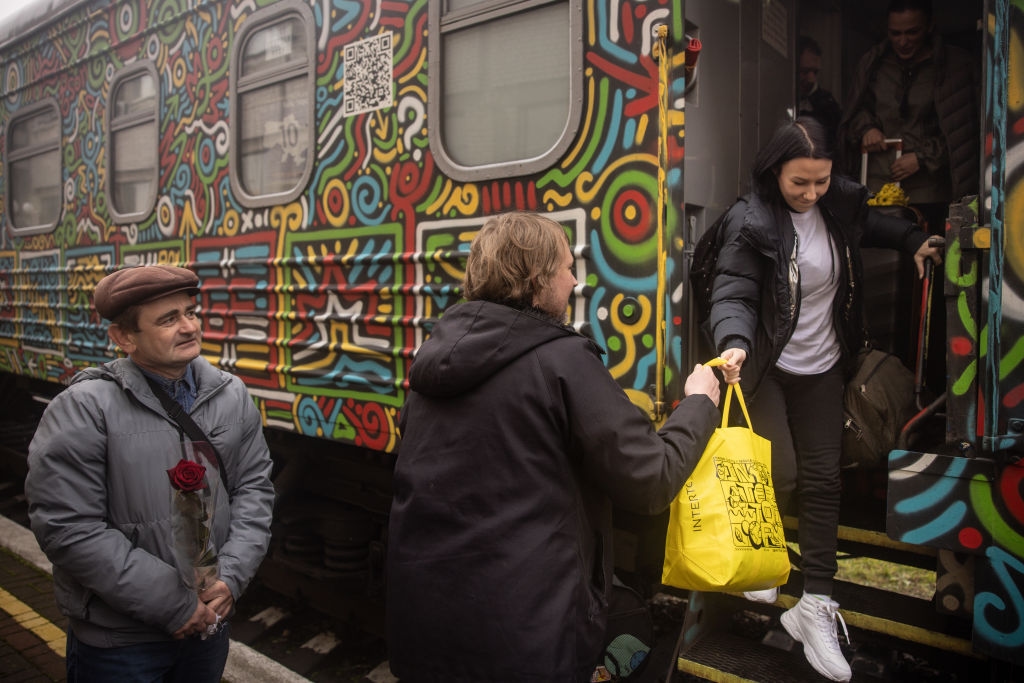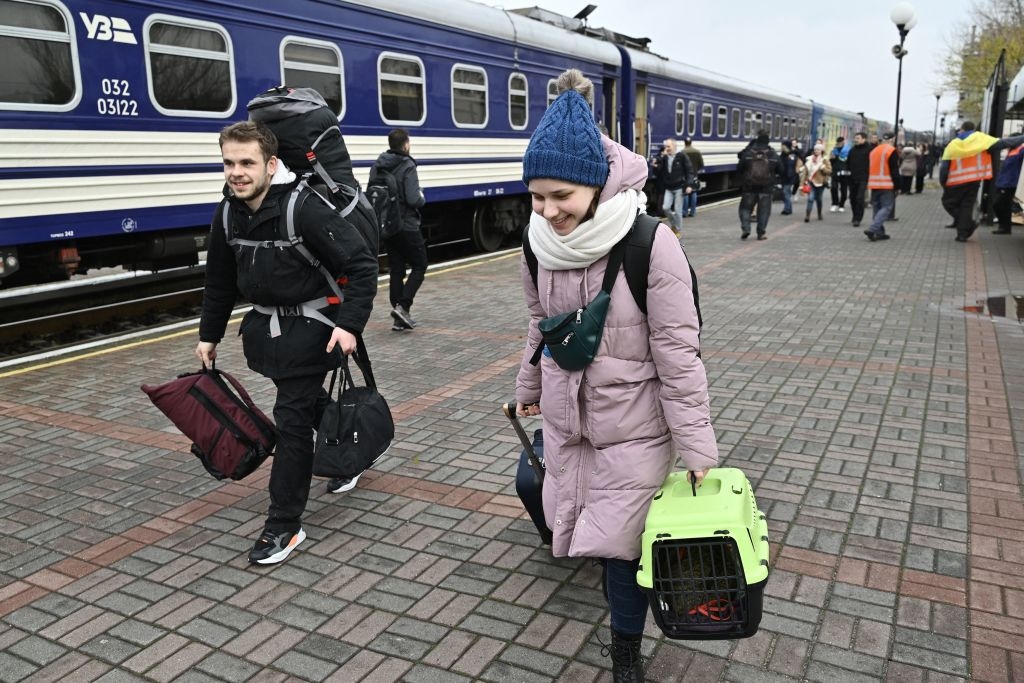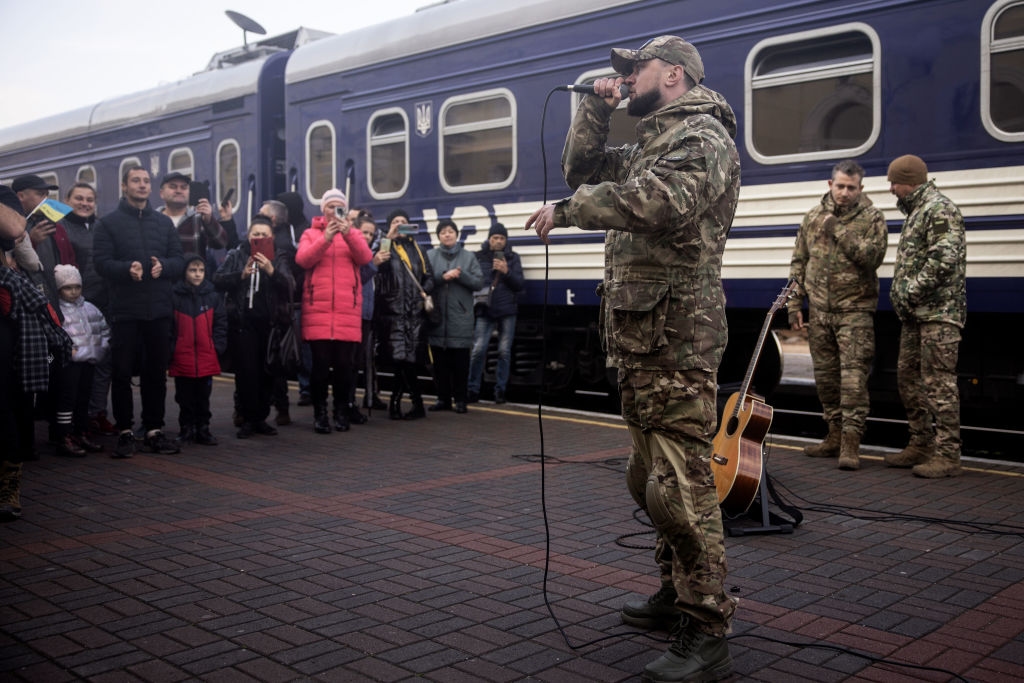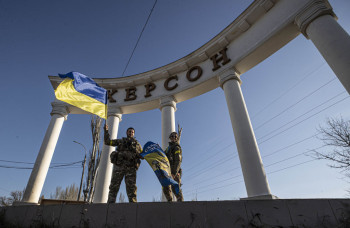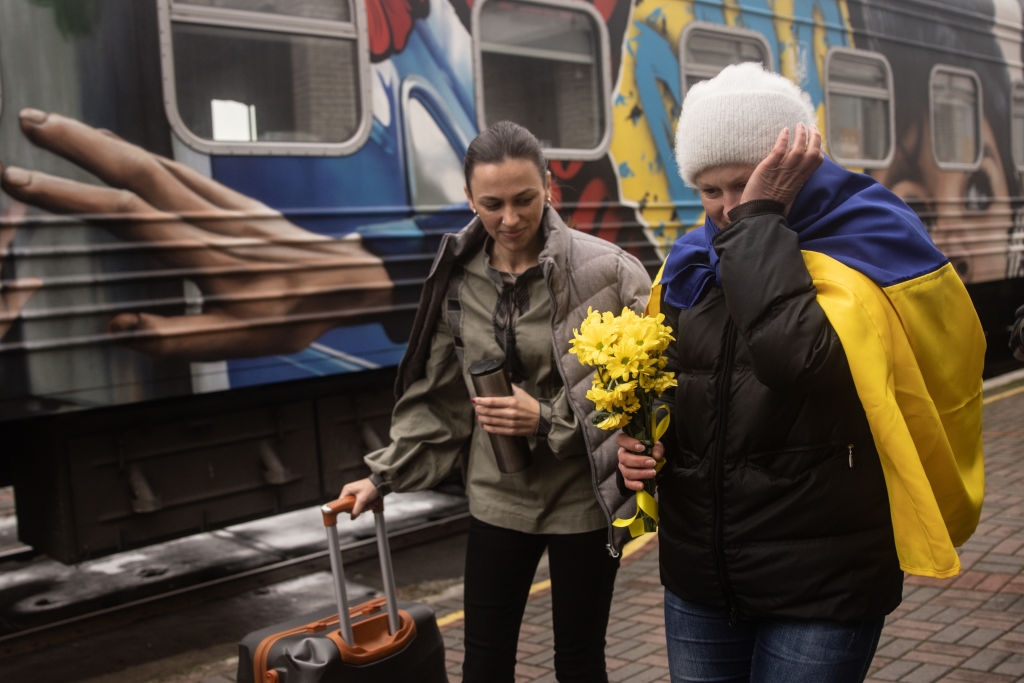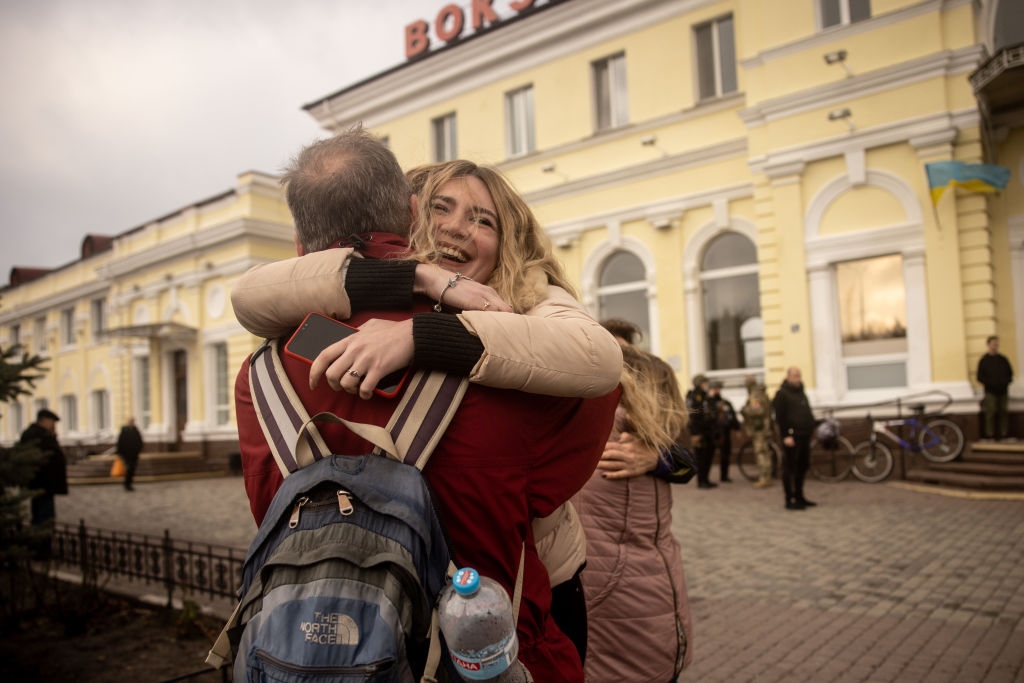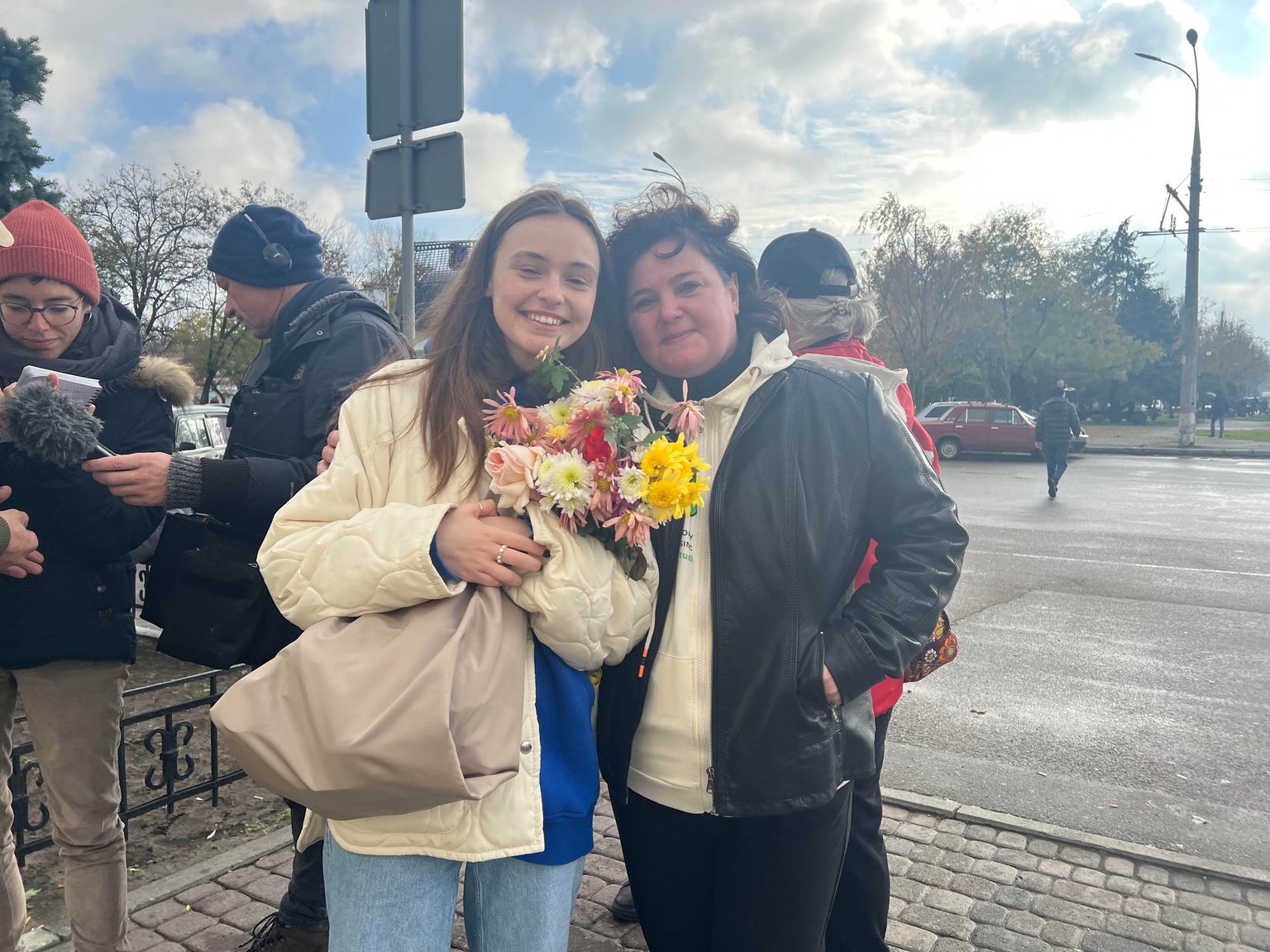Families reunite through tears and smiles at Kherson central station
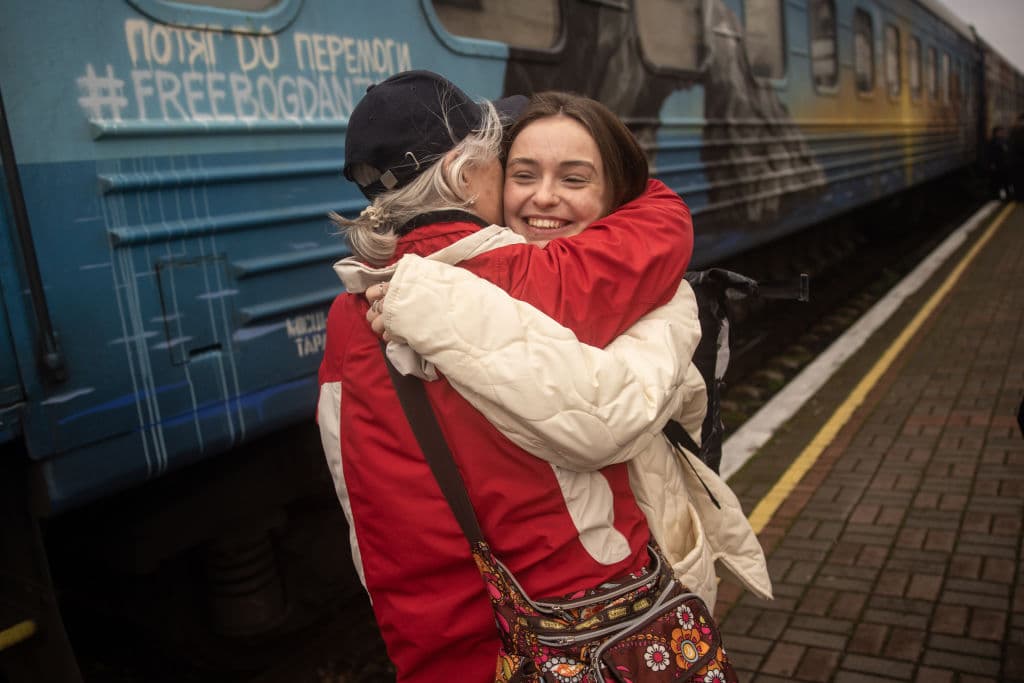
KHERSON — Svitlana Dosenko stood dangerously close to the edge of the platform, anxiously waiting for her son to arrive on the first train from Kyiv to Kherson since Russia’s invasion engulfed the entire country.
“I left home in a hurry because I was worried that the platform would be full,” Dosenko said, her eyes not leaving the track the train would arrive on.
She was finally about to reunite with her 38-year-old son after surviving an “emotionally haunting” Russian occupation. Her husband, sick with Covid-19, died in the hospital when an intensive care unit suddenly lost power as Russians invaded the city in February.
As she was grieving her husband’s death, fearing patrolling Russian troops, and worrying about her elderly mother, trapped in Russian-held territory on the other side of the Dnipro River, regular phone calls with her son were Dosenko’s only succor.
But on Nov. 19, for the first time in a long time, Dosenko couldn’t stop smiling. Only a week ago, Ukrainian forces recaptured the regional capital city of Kherson. Now, for the first time since Feb. 24, when Russia invaded and attacked the entire country, Ukrzaliznytsia state railway operator’s service to Kherson was restored.
Dozens of locals, some bearing flowers, others wrapped in Ukrainian flags, stood waiting for their loved ones or merely expressing support. Several dozen others climbed up onto a pedestrian overpass above the railway, eager to catch the first glimpse.
A military band, along with Ukrainian pop star Kolya Serga and rapper Yarmak were on hand to sing the national anthem and play some patriotic hits as the train, decked out in bright murals, pulled into the station. Some passengers waved cheerfully from the windows. Others visibly wept.
“This is the best present, to see my child whom I hadn’t seen since the new year, since January,” cried Yana Klymenko, as she hugged her daughter Anna, who just got in from Kyiv.
Anna’s cheeks also glistened with tears. She is a Kherson native, whose IT job in Kyiv took her away from her family before Feb. 24. Little did they know that the invasion would tear them apart for almost nine months.

Video by Iryna Matviyishyn/ Anna Yakutenko
Rail transit has been the lifeline of Ukraine, playing a key role in keeping the country fed, connected, and supplied, ever since the war halted air traffic in Ukraine.
“It is important that the railway traffic is now being restored in order to provide humanitarian aid to the people of Kherson, to deliver the first, much-needed equipment,” Yaroslav Yanushevych, the governor of Kherson Oblast, said at the station, as the train arrived.
“No road can handle the amount of humanitarian aid that a railway can provide. Therefore, the restoration of the railway is a very important issue.”
“This connection is not only for goods, not only for the things we need to deliver: food, and everything else. This is the flow of passengers, this is the ability of people to easily get here and leave the city. It is very important.”
The metallic clatter of the train was reassuring to Nadiia Nikolenko, a former railway worker, who lives just 300 meters away from the tracks. The noise of trains never bothered her. It was their absence, the eerie silence, that made it feel wrong.“For me, it was very strange,” she said, holding a Ukrainian flag with her friend. “We would pass by and it was eerily painful to look at all of this.”
Andriy Ivchenko reflected on this moment as he waited for the first train to arrive from Kyiv to Kherson since the full-scale invasion. He and his family were on the very last train from Kyiv to Kherson in February — his wife and teenage son would later be allowed to leave Kherson. They wanted their son to have a “normal Ukrainian education” as the lies of the Russians were too thick to bear. After occupation, Russians enforced the Russian curriculum at schools.
“It’s hard to express in words,” Ivchenko said. “Their lies, their constant lies, I watched them, how they were transmitted. Now, it’s like living on a different planet. It’s hard to explain.”
Just as the music stopped playing on the platform, reunited families rushed home to enjoy the long-awaited time together.


